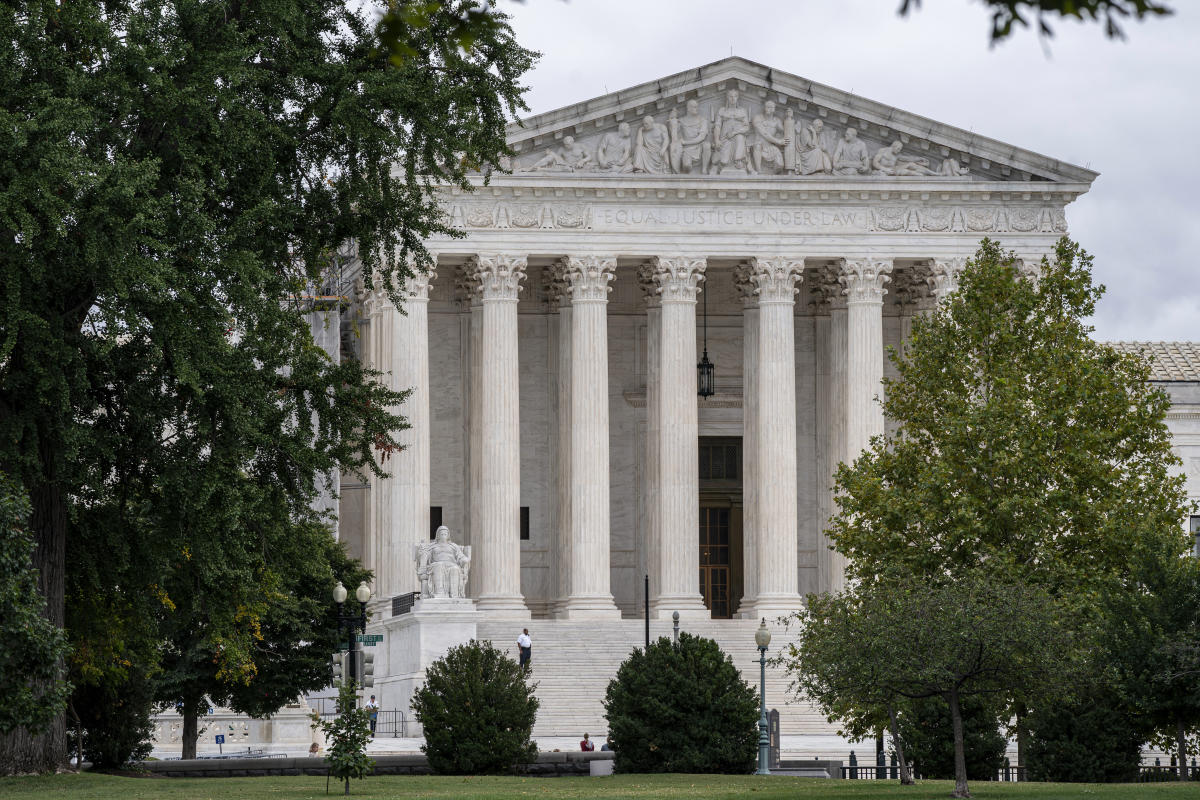WASHINGTON (AP) — The Supreme Court is currently addressing the issue of public officials blocking critics from commenting on their social media accounts. This matter first emerged in a case involving former President Donald Trump.
The justices are now hearing arguments in two cases involving individuals who were blocked from leaving critical comments on social media accounts belonging to school board members in southern California and a city manager in Port Huron, Michigan.
These cases form part of the Supreme Court’s focus on the relationship between government and private digital platforms.
In early 2022, the court will also assess Republican-passed laws in Florida and Texas that restrict large social media companies from removing posts based on their expressed views. The tech companies argue that these laws violate their First Amendment rights. These laws reflect Republicans’ belief that the platforms disproportionately censor conservative perspectives.
Additionally, there is a challenge from Missouri and Louisiana to the Biden administration’s actions against controversial social media posts on topics such as COVID-19 and election security. The states argue that the administration is unconstitutionally pressuring the platforms to suppress conservative positions.
While these cases concerning public officials’ use of social media are less overtly partisan, they are similar to a previous case involving Trump’s decision to block critics from his personal Twitter account. The justices dismissed that case after Trump left office.
The @realdonaldtrump account had over 88 million followers, but Trump maintained it was his personal property. The 2nd U.S. Circuit Court of Appeals in New York ruled that Trump could not silence critics because he used the account primarily for official communications.
Appeals courts in San Francisco and Cincinnati reached conflicting decisions about when personal accounts transition into official ones.
The first case involves two elected members of the Poway Unified School District Board of Trustees in California. Michelle O’Connor-Ratcliff and T.J. Zane utilized their personal Facebook and Twitter accounts to interact with the public. When two parents, Christopher and Kimberly Garnier, left critical comments and replies on the board members’ accounts, they were blocked. The 9th U.S. Circuit Court of Appeals declared that the board members had violated the Garniers’ free speech rights by taking this action. Zane is no longer serving on the school board.
In the other case, James Freed, who became Port Huron‘s city manager in 2014, used a Facebook page he created during college to connect with the public and share details about his daily life. In 2020, a resident named Kevin Lindke used the page to comment multiple times from three different Facebook profiles, including criticizing the city’s response to the COVID-19 pandemic. Freed blocked all three accounts and deleted Lindke’s comments. Lindke filed a lawsuit, but the 6th U.S. Circuit Court of Appeals ruled in favor of Freed, emphasizing that his Facebook page encompassed his roles as a “father, husband, and city manager.”
The Biden administration supports the officials and urges the court to recognize the distinction between their private and public lives. The Justice Department stated that in these cases, the government does not control or operate the accounts in question.
On the other side of the argument, the American Civil Liberties Union (ACLU) asserts that the officials in both cases engaged in public, or state action, by excluding dissenting constituents from social media profiles they presented as extensions of their public office.
Decisions in O’Connor-Ratcliff v. Garnier, 22-324, and Lindke v. Freed, 22-611, are expected to be reached by early summer.
___


